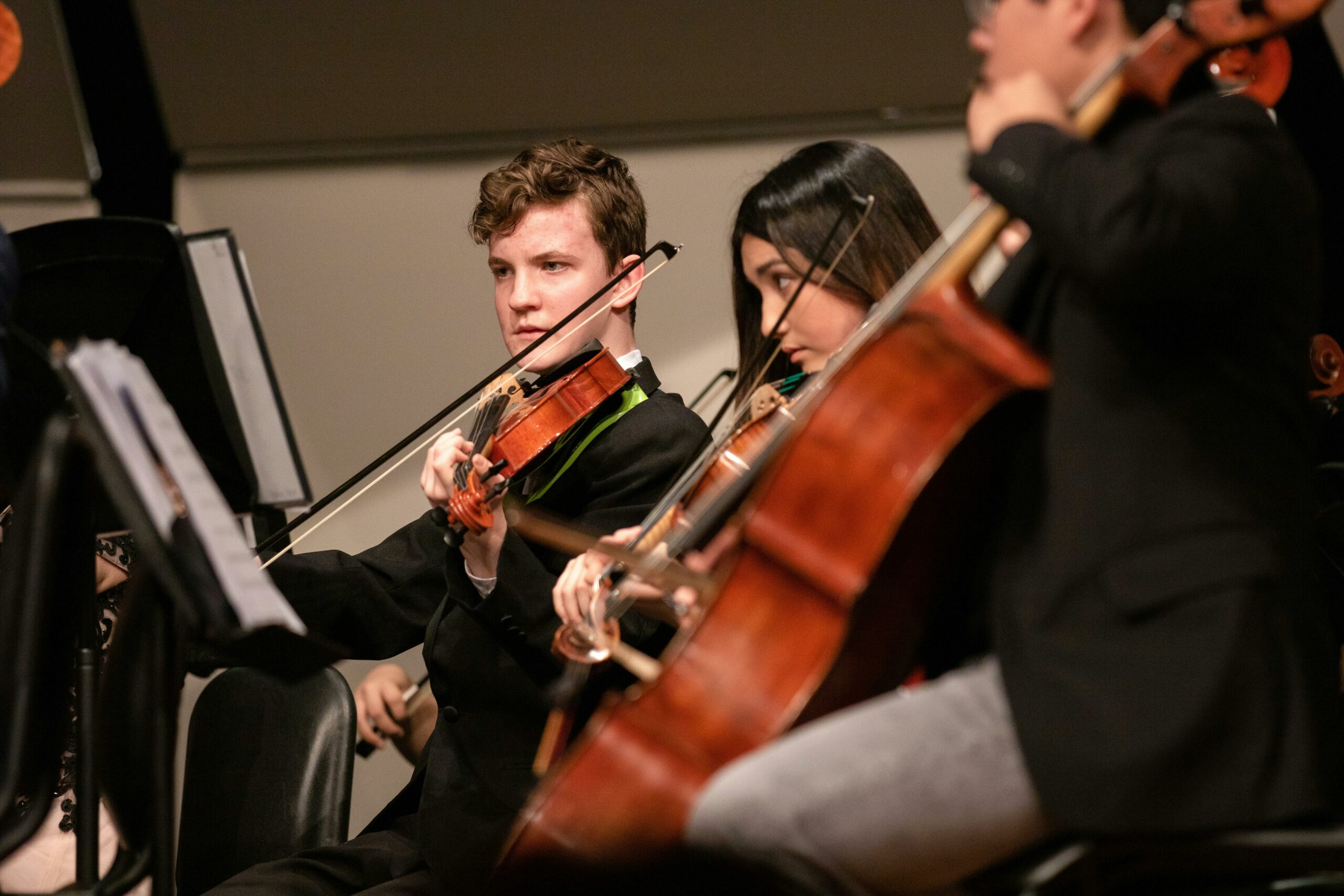
Music the second-highest growing SHAPE subject at GCSE level for 2024.
Photo: Roxanne Minnish via Pexels
GCSEs: Music on the up, but arts decline continues
While this year's GCSE results reveal an increase in the proportion of students taking music, the overall trend is still one of long-term decline across arts subjects.
Music entries for GCSE have shown a notable increase for the first time after nearly a decade of long-term decline.
According to the British Academy's analysis of results data provided by the Joint Council for Qualifications (JCQ), there was an 8.7% increase this year in the number of students sitting Key Stage 4 music, up to 35,861 compared with 32,980 in 2023.
The rise made music the second-highest growing SHAPE (social sciences, humanities and the arts for people and the economy) subject for 2024, after business studies. However, entries are still well below those in 2019, when 38,511 students sat GCSE music.
READ MORE:
- Entries for arts A-levels down nearly a third since 2010
- Labour: Collapse in music education 'a disgrace'
The rebound in music students follows a 12.5% decrease between 2022 to 2023 and a long-term decrease of 6.9% between 2019 to 2024.
The Independent Society of Musicians (ISM) cautioned that although GCSE entries have risen, so has the overall size of the cohort, which increased by more than 250,000 compared with summer 2023.
"Whilst there has been an increase in music GCSE, it is important to understand that it is only a small rise – 0.2% of the cohort in England," ISM CEO Deborah Annetts told Arts Professional.
"As the House of Lords Education for 11–16-year-olds committee said in their recent report, there continue to be major challenges in accessing creative subjects in our state secondary schools as a direct result of the previous government’s education policies."
"This small increase does not negate those concerns. There are serious issues around accessing creative subjects in our state schools, and this has an impact on ensuring the diversity of the creative industries workforce."
Despite concerns about the overall trend, Ofqual’s Chief Regulator, Sir Ian Bauckham, welcomed the rise in music entries, saying, "If 9% more people have reached the GCSE standard in music this year, I think we should be rejoicing about that because music is a wonderful gift.”
Professor Julia Black, President of the British Academy, also called the increase "encouraging", adding "long may it continue".
A 'staggering' drop
In a separate analysis conducted by Campaign for the Arts (CFTA), the uptick in music came in contrast to a decline in overall entries for arts subjects, with these now accounting for a smaller proportion of GCSEs than at any time since 2010.
Over that period, CFTA's data showed there had been a 47% decline in the proportion of arts subject entries, a figure the organisation's Director Jack Gamble called “staggering".
He added: “This is a direct result of policies that have systematically underfunded and undervalued the arts, particularly in state-funded secondary schools across England.”
Compared to 2023, CFTA's data showed the proportion of GCSE entries in arts subjects had shrunk by 1%, from 7.13% to 7.06%.
Over the past year, the most significant decline in entries was for performing/expressive arts and dance, which both saw falls of 7%.
The drop off for drama was slightly less at 5%, while design and technology saw a 3% decline and media/film/TV studies just 1%.
The only other area in which a slight uptick was seen was art and design subjects, the proportion of which increased by 1%.
Education policy
The figures follow a similar downward trend revealed in CFTA's analysis of last week’s A-level results, which indicated that arts entries at Key Stage 5 had dropped by a third since 2010.
Jacqui O'Hanlon, Director of Creative Learning and Engagement at the Royal Shakespeare Company, said the decline matters "because so much research points to the importance of an arts-rich education in building capabilities and aptitudes that improve life-chances for young people”.
O’Hanlon welcomed the new Labour government’s curriculum review announced last month, which the Department for Education has said will seek to establish a "broader, richer, cutting-edge curriculum”.
“It’s heartening that the curriculum review will be asking questions about how subject areas like drama, music and dance are integrated into school life," she continued.
“We know that arts subjects and experiences have the power to develop agency, boost well-being and improve learning outcomes for young people – but accessing these experiences shouldn’t be down to luck or a postcode lottery.”
Join the Discussion
You must be logged in to post a comment.